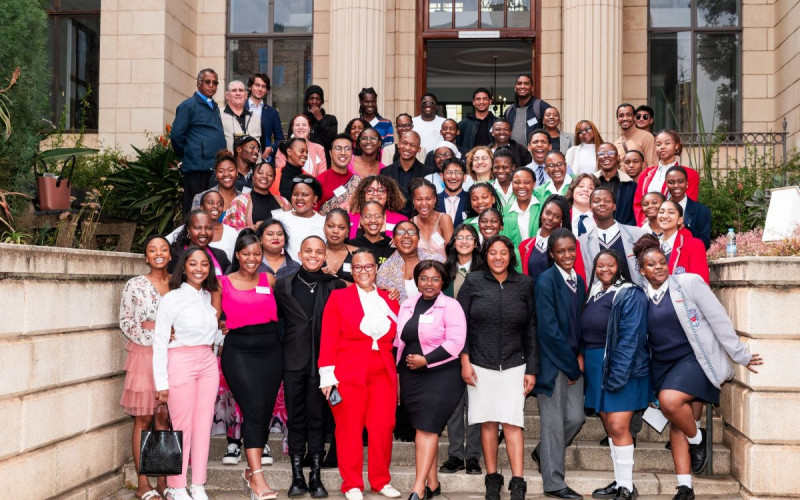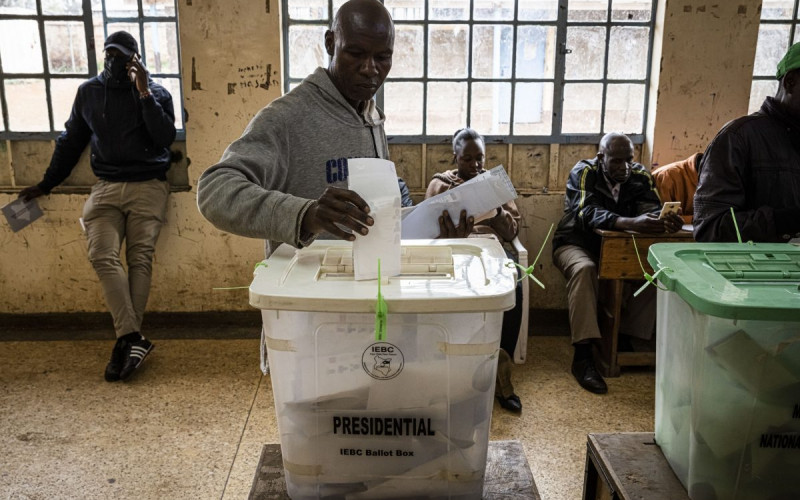The South African Institute of International Affairs (SAIIA) and the Centre for Policy Studies (CPS) cordially invite you to a scoping workshop entitled “Developing the Capacity of Civil Society to Track the Implementation of the African Peer Review Mechanism”, which will take place on 12-13 October 2010 at SAIIA’s head office at Jan Smuts House, University of Witwatersrand, Johannesburg. The keynote address will be given by the Minister of Public Service and Administration and South Africa’s African Peer Review Mechanism (APRM) Focal Point, the Honorable Minister Richard Baloyi.
The African Peer Review Mechanism was established in 2003 as an innovative instrument aimed at improving governance in Africa, created and driven by Africans for Africans. Through a series of voluntary governance reviews, member states aim at collectively improving governance on the continent through sharing best practices and following recommendations made by the APRM Panel of Eminent Persons. The intention of these reviews is to spur reform – at the end of the review each country embarks on implementing a National Programme of Action (NPoA), according to which it is supposed to carry out pre-agreed commitments aimed at improving governance. To date, 30 African states have signed up to the APRM and 13 of these have undergone their first review – including four in southern Africa (South Africa, Mozambique, Lesotho and Mauritius).
One of the greatest challenges for the APRM has been monitoring and reporting on the implementation of the NPoA. There are only loose procedures and guidelines for Monitoring and Evaluation (M&E) and some countries have already missed deadlines for submitting their annual NPoA implementation reports. Furthermore, a number of implementation reports have lacked detail and did not provide concrete evidence and data which shows the extent to which the NPoA is being implemented. They also tended not to reflect the voices of civil society organisations (CSOs).
SAIIA and CPS have launched a project to empower civil society in Southern African APRM states to track the implementation of the APRM in their countries, known as the APRM Monitoring Project (AMP). Through this project, CSOs will be assisted to develop independent reviews of APRM implementation through the use of an APRM Monitoring & Evaluation Tool (AMET). The AMET is not intended to duplicate the work of the relevant national APRM agencies, but to complement and expand upon existing M&E processes. During this scoping workshop, a draft of AMET will be presented in order to receive feedback, so as to refine and improve the method for tracking and evaluating NPoAs. In addition, other key elements of the AMP will be shared and discussed. We would value your input and hope to welcome you in Johannesburg this October.
RSVP to Ms Gontse Legong at Gontse.Legong@wits.ac.za or on 011 339-2021 ext. 153 by 30 September 2010. Places are limited, so please respond timeously.
KEY OBJECTIVES OF AMP SCOPING WORKSHOP
- To officially launch the APRM Monitoring Project (AMP)
- To gather constructive input to strengthen the draft APRM Monitoring and Evaluation Tool (AMET)
- To ascertain interest from Southern African civil society organisations in participating in the AMP), the various roles they could play, and to identify potential partners for Southern African country studies
- To discuss strategies for the implementation of the project, including capacity building, network creation, collaboration strategies, report compilation, report dissemination and publicity
- To identify and explore benefits for CSOs from participation in the AMP
AMP SCOPING WORKSHOP PROGRAMME
Programme subject to change
DAY 1: TUESDAY 12 OCTOBER 2010 |
||
| 08:30-09:00 | Registration | |
| 09:00-09:30 SESSION 1 |
Background to the APRM Monitoring Project (AMP), APRM basics, rationale and goals of the scoping workshop – Steven Gruzd (SAIIA) Download – English, Robin Richards (CPS), Dugan Fraser (consultant) |
Outlines the APRM, the AMP and expectations and aims of this scoping workshop |
| 09:30-11:00 SESSION 2 |
KEYNOTE ADDRESS – The APRM and why it should matter to civil society in southern Africa – Minister of Public Service & Administration, Honourable Richard Baloyi Download– English Chairman: Joe Mollo, SAIIA National Council Discussion |
Provides a view from the South African government of the roles of civil society in the APRM & its implementation, and update of the process in SA |
| 10:30-11:00 | Tea | |
| 11:00-11:30 | What is monitoring and evaluation? –Dugan Fraser, consultant Download – English |
Provides a brief overview of monitoring and evaluation, explaining how it is done, the role of indicators and overall aims |
| 11:30-13:00 SESSION 3 |
What exactly are we tracking? – Tšoeu Petlane (SAIIA) and Dugan Fraser Download – EnglishDiscussion |
Distills the key issues, recommendations and National Programme of Action (NPoA) items from APRM reports, to select what should be tracked, measured and evaluated, and why this matters to CSOs. Also covers the basics of developing and using indicators. |
| 13:00-14:00 | Lunch | |
| 14:00-15:30 SESSION 4 |
Building a network to monitor APRM implementation: Lessons from Uganda – Arthur Larok (Uganda NGO Forum) Download – EnglishDiscussion |
Ugandan civil society groups have successfully collaborated to track the APRM’s progress in their country. The session will explore both creating the network and compiling an APRM monitoring report |
| 15:30-15:45 | Tea | |
| 15:45-17:00 SESSION 5 |
What’s in it for us – Why should CSOs get involved? – Steven Gruzd Download – English Discussion |
Explores building a coalition of governance monitors, assesses needs and interests of participants |
| 19:00-22:0 | Dinner | |
DAY 2: WEDNESDAY 13 OCTOBER 2010 |
||
| 09:00-10:30 SESSION 6 |
The draft APRM Monitoring & Evaluation Tool (AMET) Tool – Yarik Turianskyi (SAIIA) Download – English, Dugan Fraser and Ogo Nzewi (CPS)(discussants) Download – English Discussion |
Present the draft AMET framework, and elicit comment and suggestions from participants, both on proposed methodology and content |
| 10:30-11:00 | Tea | |
| 11:00-13:00 SESSION 7 |
Groupwork – Dugan Fraser Separate groups:
|
In smaller groups, participants will discuss areas of common interest, key APRM themes to track and focus on developing indicators to measure whether goals are achieved, including at input, process, output and outcomes stages. Each group will have a separate assignment. Discuss sources of information. Brainstorm on compiling tracking reports. Discuss media strategy for publicising results |
| 13:00-14:00 | Lunch | |
| 14:00-15:30 SESSION 8 |
Synthesis, Wrap Up and the way Forward – Dugan Fraser | Groups report back Highlight the key indicators emerging from each of the thematic areas, explore the way forward for the drafting and completion of the tracking instruments, gauge interest from participants, roles and responsibilities and timelines |







